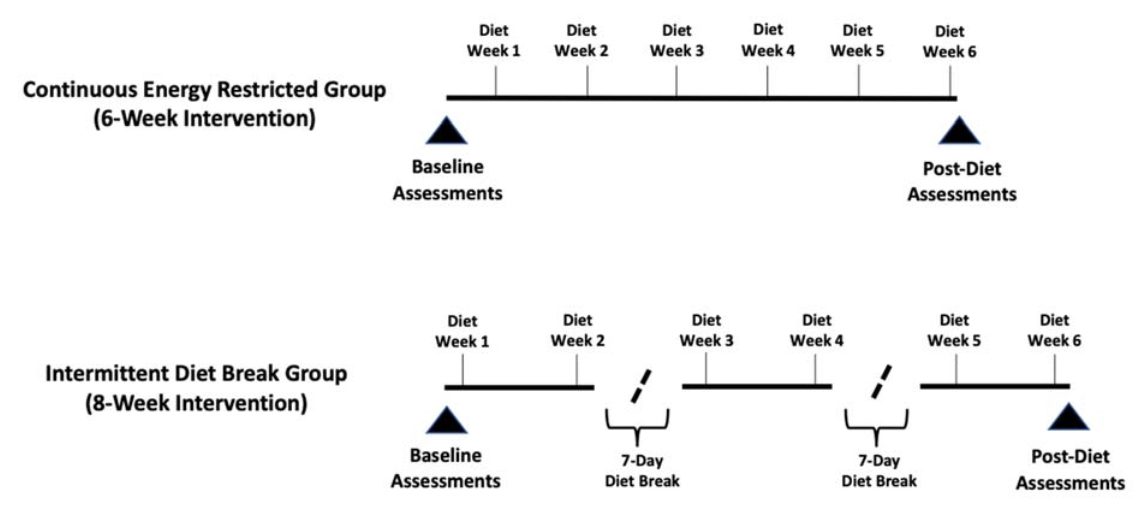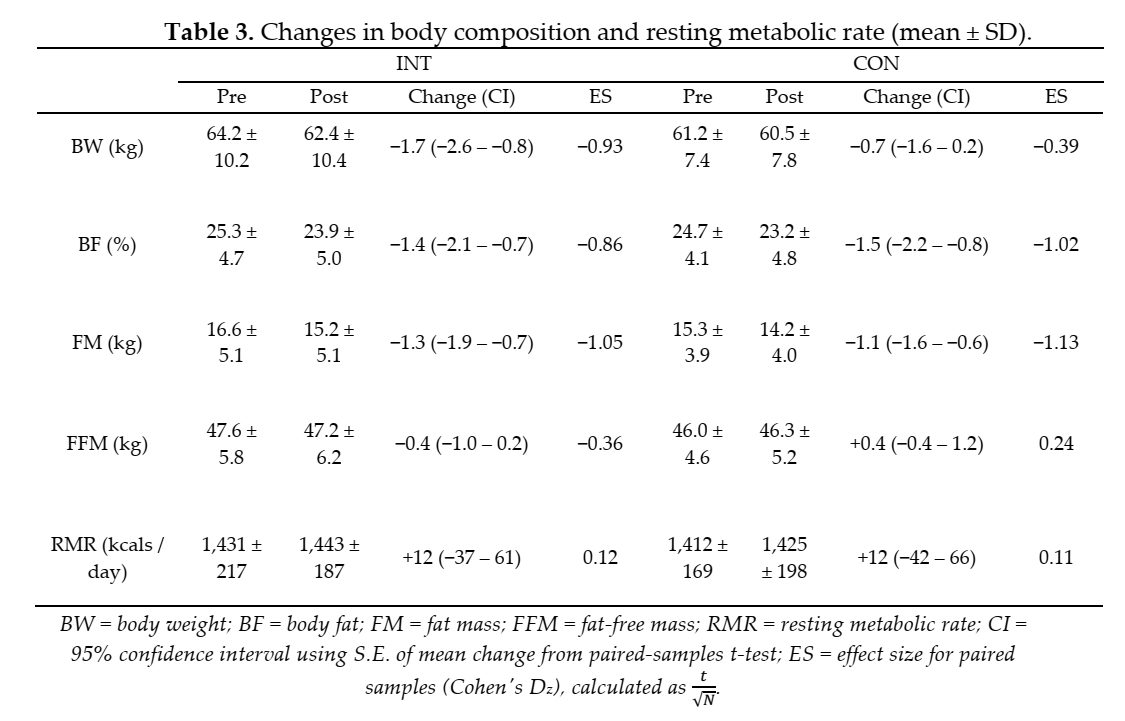Should you program diet breaks while cutting? [New study]
Diet breaks are a popular dieting tool in evidence-based fitness circles. Diet breaks are claimed to improve muscle retention, fat loss and diet adherence. We collaborated with the University of South Florida and other researchers to investigate if there was any truth to these claims in our newly published study. Previous literature on diet breaks has mainly looked at untrained and male subjects, so we performed our study with strength-trained women.
What we did
We recruited 54 strength-trained women to perform a 6-week fat loss diet with a 25% energy deficit. All participants consumed a high-protein diet with at least 1.8 g/kg/d protein and 60% of remaining calories from carbs; 40% from fat. All the women trained 3x per week. The regular diet group performed the cut in one go. The diet break group took 2 diet break weeks with maintenance energy intake after weeks 2 and 4. Since the diet break group trained for 2 additional weeks, the diet break group performed slightly fewer sets per session to equate the total training volumes during the study between the groups. After the diet period, we assessed the changes in their body composition (via ultrasound scanning as well as at-home BIA), metabolic rate (RMR), hunger level, ease of sticking to the diet and their eating behaviors. We also monitored these psychological variables each week during the cut.

What we found
The diet breaks didn’t achieve a damn. There were no significant differences between the groups for changes over time in their body composition, resting metabolic rate, or seven of the eight measured eating behavior variables, including ease of sticking to the diet, hunger and motivation to continue the diet. The table below lists the primary body comp and RMR measurements, for those interested in the details.

If we want to get into minor differences, there were technically 2 significant between-group differences. First, the diet break group lost significantly more fat-free mass according to their at-home body fat percentage scales (BIA). However, the more reliable ultrasound measurements did not confirm this, so I wouldn’t put any stock in this. Clearly, the diet breaks didn’t improve muscle retention though.
Second, the diet breaks reduced disinhibition, which could improve long-term diet adherence. However, this is quite speculative. The chance of a statistical type I error is large, considering how many measurements we did and how many questions we asked the participants. Even if there really was a difference between the groups, it’s questionable if this matters, as it didn’t result in any change in actual eating behaviors, diet adherence or perceived effort. And even if it did, it almost certainly wasn’t worth spending 33% more time on the diet for.
Our findings are in line with the highest-quality other research on diet breaks for strength trainees: diet breaks just pause your progression without any net benefits for your metabolism, hormones, diet adherence or body composition.
Take-home messages
- Diet breaks are a waste of time for most intents and purposes. You’re just pausing your progress and any problems you faced before the diet break will still be there when you resume the diet. It’s sticking your head in the sand.
- If you feel you need diet breaks, you’re most likely better off just dieting more slowly rather than dieting more aggressively with diet breaks in between. Lower average energy deficits have well-established benefits for body recomposition, whereas diet breaks do not.
- If you do need to pause a cut for, say, a holiday, you may as well try to lean bulk that period with a slight energy surplus to improve muscle growth and strength development.
- If you for some reason still prefer a maintenance phase diet break and you’re ok with achieving your goals a bit more slowly, that’s fine. It doesn’t have any adverse effects.
Many thanks to all my co-authors and the study participants!
Study reference
Interested in more details? We published the paper in Open Access format, so anyone can read it for free. Click here to download the full text of our paper.
The Effects of Intermittent Diet Breaks during 25% Energy Restriction on Body Composition and Resting Metabolic Rate
in Resistance-Trained Females: A Randomized Controlled Trial. Siedler et al. Journal of Human Kinetics volume 86/2023, 117–132 DOI: 10.5114/jhk/159960
 Want more content like this?
Want more content like this?
Then get our free mini-course on muscle building, fat loss and strength.
By filling in your details you consent with our privacy policy and the way we handle your personal data.
